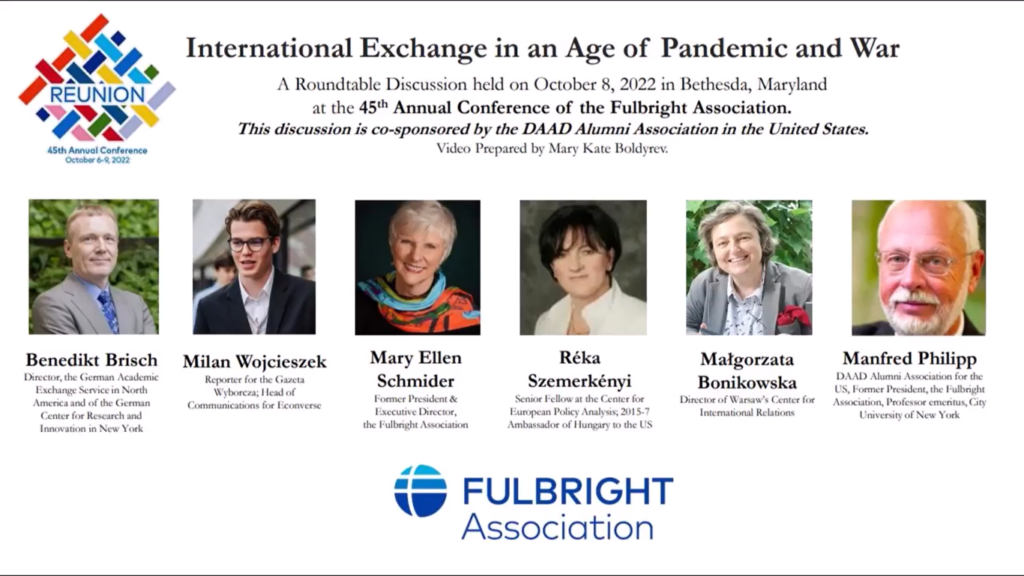
Now, Ukraine, as well as the whole region of Central Europe with the Baltic Region, have their momentum, which can foster a better understanding of and a higher interest in this region. Generally speaking, I think there is not enough knowledge of our region in the Western world per se. Thus, it is our momentum now and I hope we will use it well, said dr Bonikowska.
In light of the 45th annual conference of the Fulbright Association on international exchange in an age of pandemic and war, Dr. Bonikowska noted there are both positive and negative aspects to education that have emerged in recent times. Negatively associated with the pandemic is the effort caused for students and teachers that came with content adaptation to online teaching.
Another issue, so Dr. Bonikowska, was the technical barrier towards new teaching equipment especially present amongst older generations of teaching staff. Nevertheless, Dr. Bonikowska emphasizes that the transition to hybrid teaching was good as it opened the space for university cooperation on a global footing.
Further, a positive effect the war in Ukraine has, is, that it generates interactions with Ukrainians as well as a mobilization of human capital and resources leading to the elimination of previous issues with Ukraine, especially in the countries on the eastern front of NATO. At the same time, Dr. Bonikowska highlighted that there is a need to refocus on transatlantic exchange programs and expand the EU’s key education innovation of Erasmus Mundus programs.
Dr. Bonikowska concluded: “Looking into the future, there are prospects that there will be many more initiatives from the West to rebuild Ukraine which also means to implement projects and academic programmes in Ukrainian first, but, generally speaking, in the whole region in order to balance the EU in the future. I strongly believe that the US or the UK could contribute considerably to this huge chance our region is facing”.




![“A positive aspect of the war in Ukraine is that it brought our region, but especially Ukraine, into the spotlight all over the world” – commented Dr. Małgorzata Bonikowska, president of the CIR, at the 45th Fulbright Association Conference on International Exchange in an Age of Pandemic and War [08.10.2022]](https://csm.org.pl/wp-content/uploads/2022/10/podcast_UW_MSZ_05.10.2022_Rakusa-300x251.png)
![“A positive aspect of the war in Ukraine is that it brought our region, but especially Ukraine, into the spotlight all over the world” – commented Dr. Małgorzata Bonikowska, president of the CIR, at the 45th Fulbright Association Conference on International Exchange in an Age of Pandemic and War [08.10.2022]](https://csm.org.pl/wp-content/uploads/2022/10/Global-Anti-illict-Trade-300x200.jpg)